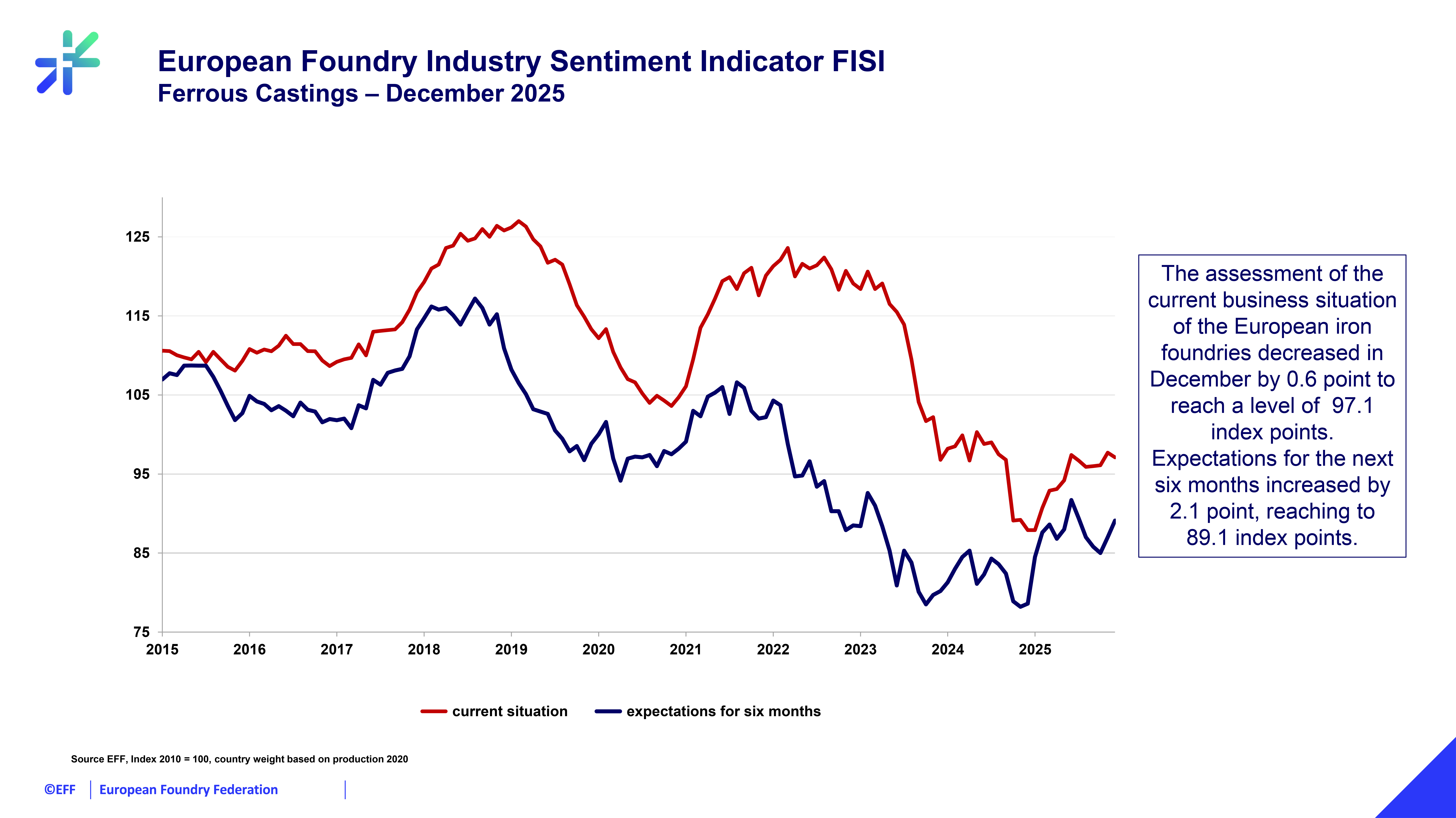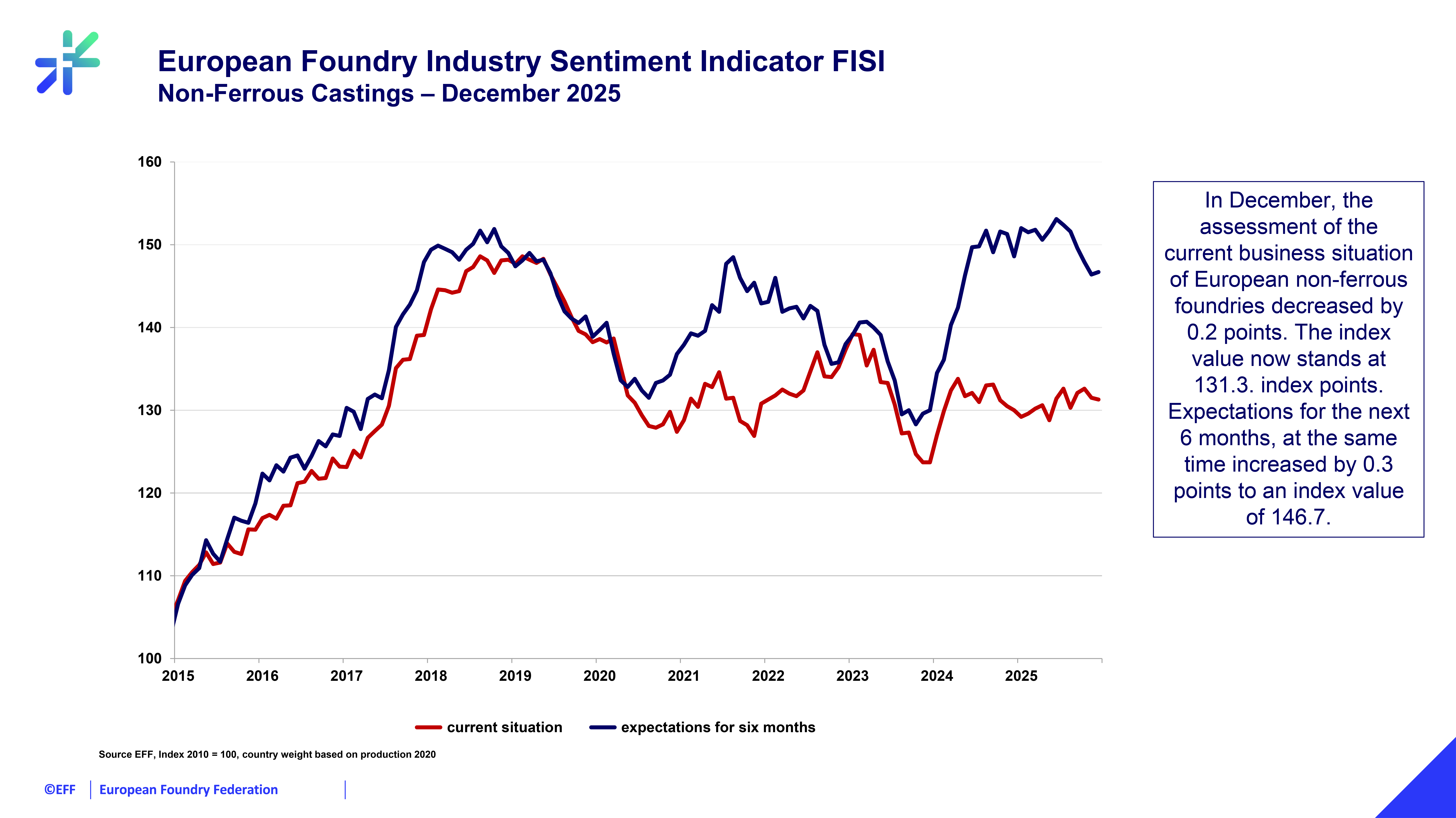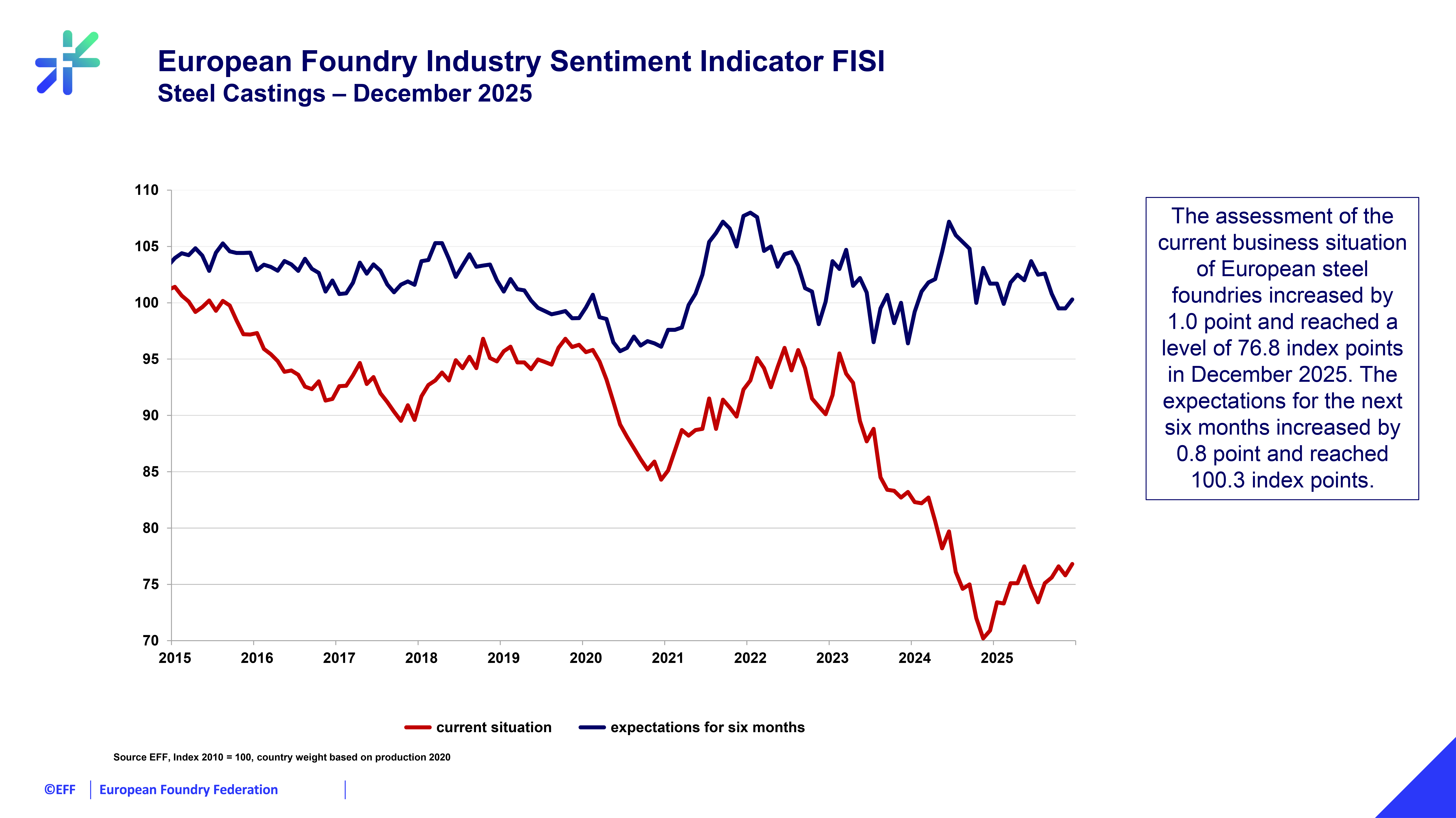L’indice FISI (Foundry Industry Sentiment Indicator) est publié chaque mois par l’association européenne de fonderie EFF à partir des réponses des organisations membres, dont pour la France, la Fédération Forge Fonderie, sur le climat des affaires dans le secteur de la fonderie (fonte, acier et non-ferreux) à date et leurs attentes pour les six prochains mois.



Télécharger les résultats de l’indice FISI de décembre 2025 ICI
L’indice FISI termine l’année 2025 en légère hausse de 0,5 point, passant de 95,3 à 95,8 points.
La situation du secteur de la fonderie de fonte sur les principaux marchés européens est similaire à celle du mois précédent, mais il convient de noter que les prévisions pour les six prochains mois, en particulier sur le marché allemand, sont relativement optimistes.
La situation est similaire pour fonderie de pièces moulées en acier. Le marché allemand a enregistré une augmentation de la production par rapport à novembre 2025 et une telle tendance est également prévue pour le second semestre. Dans les autres pays membres de l'EFF, la situation n'a pas changé par rapport à novembre.
Pour la fonderie de métaux non ferreux, la situation actuelle dans les pays membres de l'EFF et les prévisions pour les six prochains mois sont plutôt positives. Il faut noter que les fonderies en Italie et en Allemagne anticipent une augmentation de la production, tandis que dans les autres pays participant à l'enquête, le niveau de production prévu sera similaire à celui des mois précédents.
L’indice BCI (*) publié par la Commission européenne remonte à -0,56 en décembre 2025 (contre -0,66 en novembre 2025).
L'indice des directeurs d'achat (PMI Purchasing Managers’ Index**) de l'industrie manufacturière de la zone euro continue sa baisse passant de 49,7 points en novembre 2025 à 48,8 points en décembre 2025.
Source : Traduction du communiqué EFF (https://eff-eu.org/european-foundry-industry-sentiment-74/).
(*) Indice BCI : Business Climate Indicator. Indice de l’évolution du secteur manufacturier en zone euro publié par la Commission européenne à partir d’enquêtes sectorielles (tendances de la production ; carnets de commandes ; carnets de commandes à l'exportation ; stocks ; attentes en matière de production). Valeur égale à 0 : Situation neutre, ni optimisme ni pessimisme marqué.
(**) L'indice des directeurs d'achat (PMI) dans la zone euro est un indicateur de la santé économique du secteur manufacturier. Il est basé sur des indicateurs tels que les nouvelles commandes, les niveaux de stocks, la production, les livraisons des fournisseurs et l'environnement de l'emploi.



 Au sommaire de ce nouveau numéro :
Au sommaire de ce nouveau numéro :